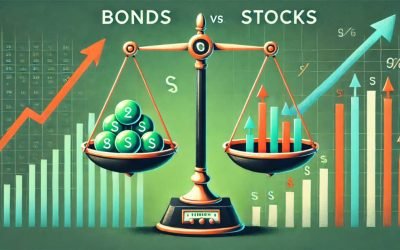Understanding the Basics of Stocks and Options
Investing in the financial markets can be a daunting task, especially when faced with a myriad of investment vehicles. Among the most popular are stocks and options. While both offer opportunities for profit, they are fundamentally different in terms of structure, risk, and potential returns. This article aims to elucidate the key differences between stocks and options, providing a comprehensive guide for both novice and seasoned investors.
What Are Stocks?
Stocks, also known as shares or equities, represent ownership in a company. When you purchase a stock, you are essentially buying a small piece of that company. This ownership entitles you to a portion of the company’s profits, usually distributed as dividends, and gives you voting rights in shareholder meetings.
Types of Stocks
- Common Stocks: These are the most prevalent type of stocks. They offer voting rights and potential dividends.
- Preferred Stocks: These stocks provide no voting rights but offer a higher claim on assets and earnings. Dividends for preferred stocks are usually fixed and paid out before common stock dividends.
Benefits of Investing in Stocks
- Ownership: Owning stocks means you have a stake in the company.
- Dividends: Many companies distribute a portion of their earnings to shareholders in the form of dividends.
- Capital Appreciation: Stocks have the potential to increase in value over time, providing capital gains.
What Are Options?
Options are financial derivatives that give the holder the right, but not the obligation, to buy or sell an underlying asset at a predetermined price within a specified time frame. Options are more complex than stocks and can be used for various strategies, including hedging and speculation.
Types of Options
- Call Options: These give the holder the right to buy an asset at a specified price within a certain period.
- Put Options: These give the holder the right to sell an asset at a specified price within a certain period.
Benefits of Trading Options
- Leverage: Options allow you to control a large amount of the underlying asset with a relatively small investment.
- Flexibility: Options can be used for various strategies, including hedging and speculation.
- Limited Risk: When buying options, the maximum loss is limited to the premium paid.
Key Differences Between Stocks and Options
Ownership vs. Contractual Rights
The most fundamental difference between stocks and options is the nature of what you are buying. When you purchase a stock, you are buying a piece of a company, which comes with ownership rights. In contrast, buying an option gives you a contractual right to buy or sell an asset at a future date, but it does not confer any ownership in the underlying asset.
Risk and Reward
Both stocks and options come with their own sets of risks and rewards. Stocks are generally considered less risky than options because they represent ownership in a company. The value of a stock can fluctuate, but it is unlikely to go to zero unless the company goes bankrupt. Options, on the other hand, can expire worthless, resulting in a total loss of the premium paid.
Risk Comparison
| Aspect | Stocks | Options |
|---|---|---|
| Ownership | Yes | No |
| Risk Level | Moderate | High |
| Potential Loss | Limited to investment | Limited to premium paid |
| Potential Gain | Unlimited | Unlimited (for calls), Limited (for puts) |
Time Sensitivity
Another critical difference between stocks and options is time sensitivity. Stocks can be held indefinitely, allowing investors to ride out market fluctuations. Options, however, have an expiration date, which adds a layer of complexity and risk. The value of an option decreases as it approaches its expiration date, a phenomenon known as time decay.
Cost and Leverage
Options offer a higher degree of leverage compared to stocks. This means that with a relatively small investment, you can control a large amount of the underlying asset. However, this leverage also amplifies the risk. Stocks require a more significant initial investment but offer more straightforward risk management.
Cost Comparison
| Aspect | Stocks | Options |
|---|---|---|
| Initial Investment | High | Low |
| Leverage | Low | High |
| Transaction Costs | Low | High |
Strategies for Stocks and Options
Stock Investment Strategies
Investing in stocks can be approached in various ways, depending on your financial goals and risk tolerance. Here are some common strategies:
- Buy and Hold: This long-term strategy involves purchasing stocks and holding them for an extended period, regardless of market fluctuations.
- Dividend Investing: Focuses on stocks that pay regular dividends, providing a steady income stream.
- Growth Investing: Targets companies with high growth potential, aiming for capital appreciation.
- Value Investing: Involves finding undervalued stocks that are expected to increase in value over time.
Options Trading Strategies
Options trading offers a wide range of strategies, from simple to complex. Here are some popular ones:
- Covered Call: Involves holding a long position in a stock while selling a call option on the same stock.
- Protective Put: Buying a put option to hedge against potential losses in a stock you own.
- Straddle: Buying both a call and a put option at the same strike price and expiration date, betting on significant price movement.
- Iron Condor: A complex strategy involving multiple call and put options to profit from low volatility.
Conclusion: Stocks vs Options

Both stocks and options offer unique opportunities and come with their own sets of risks and rewards. Stocks provide ownership in a company, potential dividends, and capital appreciation, making them suitable for long-term investors. Options, on the other hand, offer flexibility, leverage, and various strategic possibilities but come with higher risk and complexity.
Ultimately, the choice between stocks and options depends on your financial goals, risk tolerance, and investment horizon. By understanding the key differences and employing appropriate strategies, you can make informed decisions that align with your investment objectives.
Pros and Cons Summary
| Aspect | Stocks | Options |
|---|---|---|
| Ownership | Yes | No |
| Risk Level | Moderate | High |
| Potential Loss | Limited to investment | Limited to premium paid |
| Potential Gain | Unlimited | Unlimited (for calls), Limited (for puts) |
| Time Sensitivity | Low | High |
| Leverage | Low | High |
Q&A Section
1. What is the primary difference between stocks and options?
The primary difference is that stocks represent ownership in a company, while options are contracts that give the right to buy or sell an asset at a future date without conferring ownership.
2. Are options riskier than stocks?
Yes, options are generally considered riskier than stocks due to their time sensitivity and the potential to expire worthless, resulting in a total loss of the premium paid.
3. Can I lose more money than I invest in options?
When buying options, the maximum loss is limited to the premium paid. However, selling options can expose you to unlimited risk.
4. What are some common strategies for investing in stocks?
Common strategies include buy and hold, dividend investing, growth investing, and value investing.
5. How does leverage work in options trading?
Leverage in options trading allows you to control a large amount of the underlying asset with a relatively small investment, amplifying both potential gains and losses.
Further reading:
Here are a few insightful articles comparing stocks and options, highlighting the key differences, pros, and cons of each investment vehicle:
- NerdWallet discusses how stocks represent ownership in a company, making them suitable for long-term, hands-off investors, while options are contracts that allow active traders to bet on price changes. The article explains that options offer greater flexibility but carry more risk and complexity. It’s a good starting point for understanding the basics of both investments(NerdWallet: Finance smarter).
- Kiplinger provides an in-depth look at whether you should trade stocks or options depending on your risk tolerance and investment goals. It emphasizes that while stocks are simpler and offer a steady path to growth, options provide greater strategic opportunities but require careful management of risks, especially since options contracts have expiration dates(Kiplinger.com).
- Securities.io offers a comparative analysis, explaining that stocks can provide dividend income and voting rights, making them attractive for long-term growth. Options, however, use leverage, potentially allowing investors to achieve larger gains with less capital but with a higher risk of losing their initial investment(Securities.io).
- Finder.com focuses on the risks and rewards of options trading, explaining scenarios where options could yield large profits or total losses depending on market movements. It contrasts this with stock investments, which offer more stability and opportunities to recover losses over time(finder.com).
These articles will give you a thorough understanding of whether stocks or options better suit your investing style.















 How to trade CFD? (00:49)
How to trade CFD? (00:49) How to trade binary options*? (01:22)
How to trade binary options*? (01:22) Forex. How to start? (01:01)
Forex. How to start? (01:01)